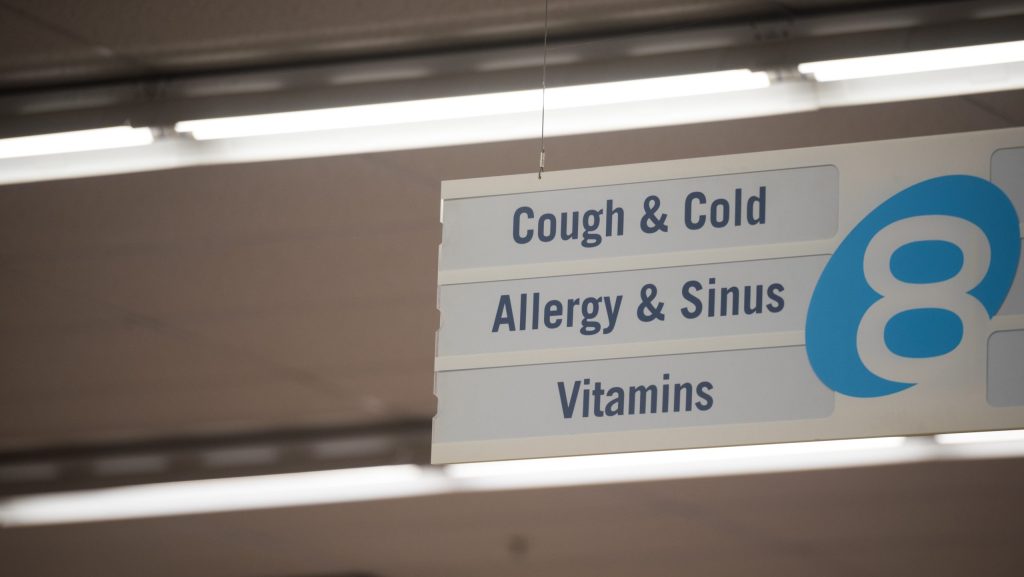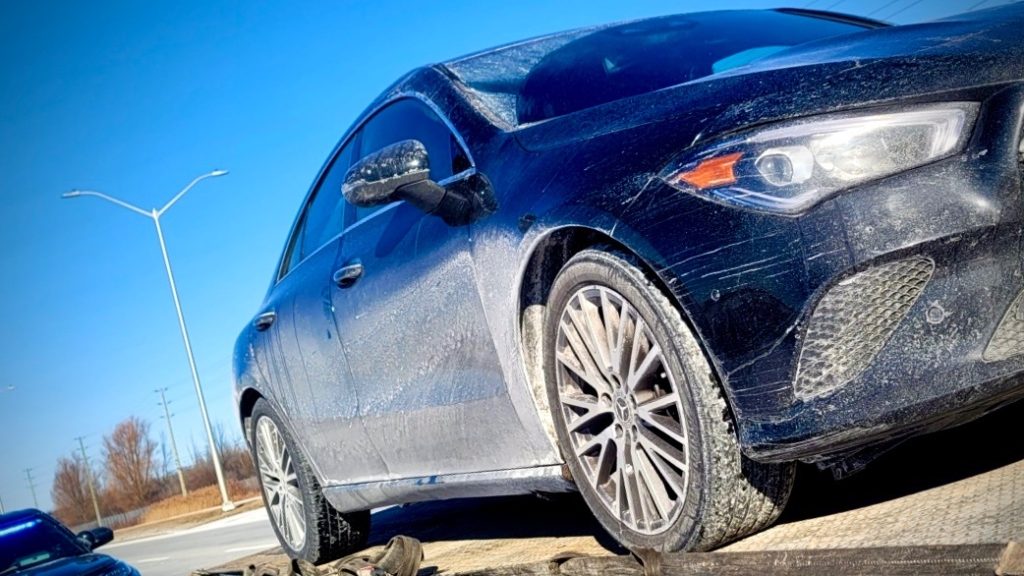Riding along in Renfrew County: Paramedics treated like family during palliative care visits
Posted Nov 25, 2021 02:00:00 PM.
This is part three of a three-part series on Renfew County's palliative paramedicine program, by Bruce McIntyre.
Born and raised in Arnprior, Matt Rouselle is a proud ‘Prior” boy who grew up in a simpler time, but he grew up with a desire to help others. For more than 16 years he has been a paramedic and his career has been based in his hometown.
When the call went out for a new community approach to delivering medical services, involving numerous agencies, including the paramedic service, he jumped at the chance to be part of a new way of thinking and helping others.
Rouselle has been serving Arnprior and surrounding areas, as a paramedic, since 2015 and is a true believer in the collaborative approach to health care.
“I was lucky when I started because I was born and raised in Arnprior and I am fortunate that it was a small town, until just recently, and more often than not when I first encountered a patient, we have met, or we know somebody who knows somebody and that really helps. When I show up and just talk to them it makes a world of difference and you can learn so much about their condition just by listening to them. You can tell how they are doing not only by what they say, but just as important is what they don’t tell you and they let it slip out.”
As Rouselle enters the home of Doug and Pat Fraser, it is like their adopted son has come home for a visit.
Fraser, now 80 years old, retired to a quiet home that was specifically built for his wife. Diagnosed with Muscular Dystorphy, she uses a wheelchair to access all the amenities with minimal effort.
As Rouselle pulls out his equipment to check their vital signs, he quickly pulls out two needles and peeks over and says “Okay, who’s going to go first?”
Although some seniors might be startled, the couple just smile and laugh. They have known the veteran paramedic for several years and they trust him implicitly when it comes to their health.
He informs them he has two influenza injections with their names on them and it saves them a trip into town where they would likely find themselves waiting in line during a pandemic.
“Matt is one of the reasons we are able to remain in our home and not be too much of a burden on the health care system,” Pat Fraser said. “Just a little thing like the flu shot means we don’t have to go to a busy area and potentially be exposed to COVID or somebody with the flu or a cough. For me, a simple cough can lead to much worse.”
Leaving the Fraser’s home, Rouselle is realistic in terms of his role.
“People like Doug and Pat… they are salt-of-the-earth people. They are not one of the palliative patients that we visit, but they are now in their 80s and if my weekly visits can help them stay at home and out of a hospital or long-term care home, then I am okay with that. If my 30-minute visit somehow frees up one of my fellow paramedics who may be called away for an emergency, then we must be doing something right.”
Like Part Of The Family
Back in the Town of Renfrew, at Harry Sculland’s home, paramedic Chelsea Lanos sits with the widower and hooks him up to a portable monitor so she can check his vitals.
Hid pulse and blood pressure are lower than usual and they are going through his routine to figure out why the readings are unusual. They talk about his recent bouts of shortness of breath and dizzy spells. He admits he had to slow down his exercise regimen and he is following the directions of his longtime family physician as she listens attentively to him.
At the same time she is subtly examining the living room and kitchen to look for signs of diminished ability to care for himself, and on this day, he appears to be alert, and in good shape given his health condition. He points out to his backyard and says there are a few leaves left, and he does so with a big smile and draws this reporter’s attention to the area.
“I didn’t have to rake all the leaves this year,” he said. “Chelsea and her boyfriend came by one day and raked it all up for me and what do you think about that. She keeps this up and I may just be persuaded to take her for a ride on my new bike.”
He insists on taking us to the garage and showing off his new bike. He shakes his head and admits it might seem foolish buying a brand new motorcycle at his age, but he stopped worrying about what other people thought a long time ago.
“My heart may not be 100 percent, but I plan to take this bike out for a drive before the end of the year before the weather gets to the point it won’t be safe,” he said. “But I am not a spring chicken and I won’t get too many more chances for a while so I better get out there while I can.”
After he closes the garage door and walks Lanos to the front door, he thanks her for stopping by and promises her that he will follow her advice and cut back on some of the walking so he does not become light-headed.
Placing her equipment back in the SUV, Lanos quickly checks her appointment calendar for the day and coordinates her next four visits. She has other patients to see and as she makes a few notes regarding Sculland’s current condition. She points out that, although palliative care has some commonalities with other health care specializations, each client is different.
“I may not realize it right away and it may jog my memory a week later, but I may suddenly realize I learned something new from one patient and passed it on to another, and that is what makes this role so rewarding. Another day when you just don’t know what is going to happen,” she said.
“If you had told me 18 months ago I would be visiting people like Harry and raking his leaves and taking a photo of him and myself with a motorcycle, I would have laughed. But this palliative program allows paramedics like myself to really make a difference in a person’s life, even if only for a short time. It is something I don’t think any of us will ever take for granted.”
The County of Renfrew’s palliative program developed out of a sense of unexpected urgency. The original plan was to slowly develop a template model with specific training modules designed to integrate paramedics to their new role gradually and not try to change the system overnight. Renfrew County Paramedic Chief Mike Nolan was able to work with his provincial counterparts to secure funding to get the palliative program launched.
Unlike most government funding agreements, this envelope of money came out in the same flurry of other federal and provincial stopgap measures in the wake of the COVID threat. Some programs worked, and some didn't.
This program exceeded everyone’s expectations so the odds are in Nolan’s favour of additional money somewhere down the road.
The efforts of Rouselle has allowed residents like the Frasers to remain in their homes in the same way Lanos' positive attitude and genuine support for Sculland have allowed him to live his final days on his own terms.
In early November, Sculland rolled his Harley out of his garage and the 88-year-old made his last trek of the season down to Calabogie. “It was a little cool, but after all, it is November,” he said.








